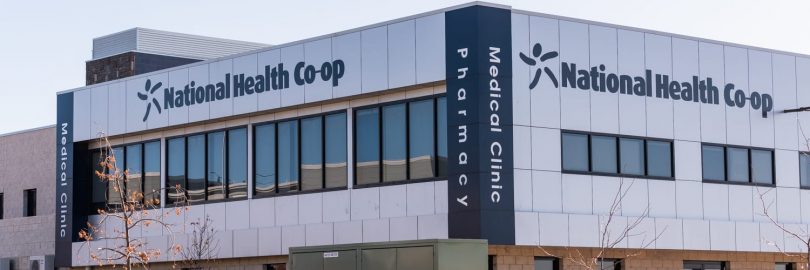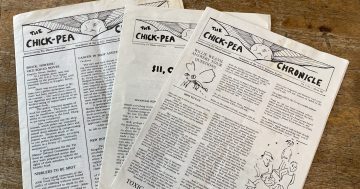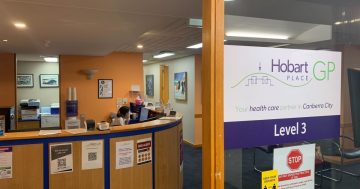
The National Health Co-op at Coombs. Photo: File.
The failure of the National Health Co-operative was greeted with widespread dismay when accountants Slaven Torline made the announcement in June that it had entered voluntary administration.
But now the Co-op’s founding chair says members deserve a full explanation from the board, accusing directors of keeping them in the dark about plans to enter voluntary administration.
Long touted as a groundbreaking model for affordable services, the Co-op’s administrators cited the end of JobKeeper and “recent staff changes” as contributing factors towards an unsustainable forecast for the 2021/22 financial year and a consequent “insurmountable” deficit.
Roger Nicoll was the founding chair of what was initially the West Belconnen Health Co-operative and is a life member. He says the members of the National Co-op are the owners of the business and were “understandably aggrieved” to discover from the administrator and media reports that the board had already invoked voluntary administration.
He believes the step has exposed the Co-op to the threat of hostile takeover and that apart from the threat of losing services, there are major questions to be asked.
The Co-op recently reported that it had 32,000 members with access to affordable health care across eight clinics in the ACT and nearby NSW, accounting for around 14 per cent of the bulk-billed GP consultations in the ACT each year.
Mr Nicoll says the Co-op developed from humble beginnings in Charnwood and West Belconnen following a Neighbourhood Watch-led meeting and a steering group to tackle the persistent problem of access to doctors and bulk-billing.
“In the early 2000s, Canberra had among the lowest rates of bulk billing in the country. GPs were choosing not to locate in these outer and less privileged areas where significant health needs coincided with increasingly poor access to GPs and affordable health services,” he said.
“A key reason for establishing a member-owned not-for-profit co-operative was to enable the community recipients of health services to influence and determine where and how those services were provided, rather than be at the whim of corporate or private practices driven by the need to raise profits.”
Members retain a relatively small financial stake in the business, but they do not have shares or stand to benefit from a winding-up or demutualisation of the Co-operative. Their main stake is in their access to and influence over the health care services of the Co-op.
Mr Nicoll says that this member ownership model has enabled the Co-op to direct profits back into the community and establish multiple clinics across Canberra and Yass after the first clinic at Charnwood opened.
While in hindsight the decision to close the Charnwood practice in 2020 without first bringing this intention before the member-owners should have set off alarm bells, at the last AGM in November 2020, the board reported that the Co-op was “responding well to challenges under COVID-19 becoming financially and operationally stronger for its actions”.
Hence the questions about why the board entered voluntary administration without first raising the issues with members.
“If the owners’ endorsement wasn’t sought and their interests weren’t considered, could the voluntary administration be misguided, premature or even unnecessary?” Mr Nicoll asks.
He is concerned about the possibility of a corporate takeover that would threaten what he describes as “the Co-op DNA”.
“There are many things that the Co-op could have done, and could still do, to pool resources or raise capital, including options not possible for other types of organisations. Without the need to turn large profits, Co-ops can survive and endure where many other businesses fail.
“With an administrator now in charge of operations, the member-owners will hope that their interests will be represented and advanced and that the Co-op is strengthened through the voluntary administration process.
“If that does not transpire, the actual owners of the business may have to fight to save the Co-op and its very reason for being – to provide access to bulk-billing GPs and affordable health care in the local community.”
With more than 30,000 members, eight clinics and a strong team of staff, Mr Nicoll believes that is possible.

















